Like most of you, lately I’ve been paying attention to all the hype on e-publishing versus traditional publishing. We’ve been getting the perspective of best-selling authors, like Eisler and Hocking. And sure, we can listen to their thoughts and advice.
But what does e-publishing mean for non-millionaire authors—which is what most of us are (including myself).
I recently got this comment, “For many writers, especially polished and seasoned writers, e-publishing is the best way to go . . . I can't honestly think of a good reason for a writer to NOT e-publish at the moment. Even if you have a print contract you should e-publish.”
The comment sums up what many people believe, that e-publishing is the becoming THE best publishing option, the way to make the most money. But is it really? Especially for average authors?
In light of all that’s happening in the publishing world, I asked my publisher for my sales figures. From what I could tell, the e-book version of The Preacher’s Bride seemed to be doing well.
When I got the numbers from my publisher, I was shocked to find out how low my e-book sales were compared to my print sales. My e-book sales comprise less than one percent of my overall sales so far.
LESS than ONE percent.
For an author with a wide-spread web presence, I had expected my e-book sales to have a larger share of my sales figures.
Sure, maybe I’d have more e-book sales if the price dropped from $9.68 to $2.99. But how much more? Is price really the determining factor for how well an e-book sells, or are there other factors that come into play?
Here are just a few things average writers should consider before taking the e-publishing plunge:
1. Who is the primary audience of your book? And are they buying e-readers and e-books?
I write inspirational historical romances. The majority of my readers are women in the 40-60 age range. In fact, I get handwritten notes from ladies who write in cursive, who don’t have email, who might not even have computers. They’d most certainly never be interested in the latest Kindle version of my book.
When we’re immersed in the writing industry and the blogosphere, we’re surrounded by fellow writers and industry professionals who all have the latest reading devices. But in reality, the large majority of readers still buy regular books.
If I’d only gone the e-publishing route, especially as a debut author, look at the 99 percent of my readership I would have missed. Of course times are changing. But I still don’t foresee middle-aged women and older shifting to Kindles any time soon.
The point? Know your audience. Are they online? Are they computer savvy? Do they like modern technology? Or do they prefer the tried-and-true?
2. How big is your established readership? And would they be willing and able to make the switch to e-books?
Can e-publishing be successful for “polished or seasoned” authors who already have a couple of books under their belt and have an established readership?
After I finish my current 3-book contract with my publisher, what if decide to head out on my own and try e-publishing instead of the traditional route? Since I already have a growing readership that loves my books, wouldn’t they be willing to follow me over into a new format?
Obviously most of my fans prefer paper books. In other words, paper readers and e-book readers are still very distinct among many demographic groups.
The point? We’ll likely lose a large percentage of our paper fans if we strictly e-publish. We’ll probably have to develop a new, different readership, similar to what happens when authors switch genres.
3. How much time, energy, and savvy can you devote to marketing?
If you follow me on Twitter, Facebook or my blog, you’ll probably agree that I’m quite active and put a pretty high emphasis on developing an online platform. I’ve worked hard to develop a wide web presence.
With my online presence combined with all the time, energy, and savvy I’ve put into marketing my debut book, you can understand my surprise that my e-books statistics aren’t higher. Imagine what the sales could look like for a writer with a significantly smaller online platform.
We certainly can't turn our noses up at the fact that established publishing houses offer fiction authors (especially debut writers) their platform. They have many, many readers who trust their brand and the books they produce. Though we do all we can to grow our platforms, we can't discount the sales that come simply by being connected to a well reputed publisher.
The point? E-publishing millionaire Amanda Hocking summed it up: “The amount of time and energy I put into marketing is exhausting. I am continuously overwhelmed by the amount of work I have to do that isn't writing a book. I hardly have time to write anymore, which sucks and terrifies me . . . . Just because I sell a million books self-publishing, it doesn't mean everybody will. In fact, more people will sell less than 100 copies of their books self-publishing than will sell 10,000 books. ”
Your turn! Have you considered e-publishing? Do you think it’s been slightly glamorized with all of the recent hoopla? Or can it be a successful option for the average writer? Why or why not?
Come back Wednesday as I chat with James Scott Bell about his venture into e-publishing and his thoughts on how writers can know if their work is ready for e-publication.
The Journey of Writing a Dual Memoir
4 hours ago



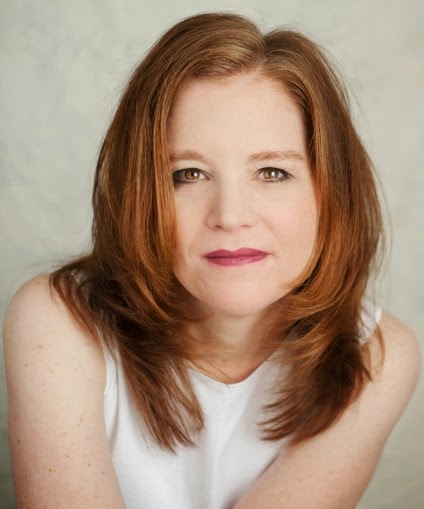


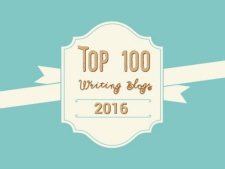
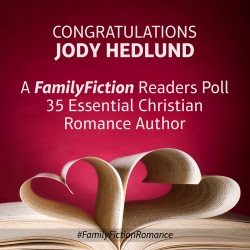

















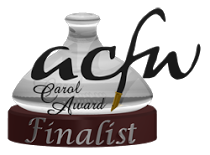


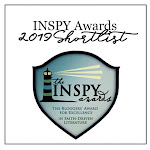


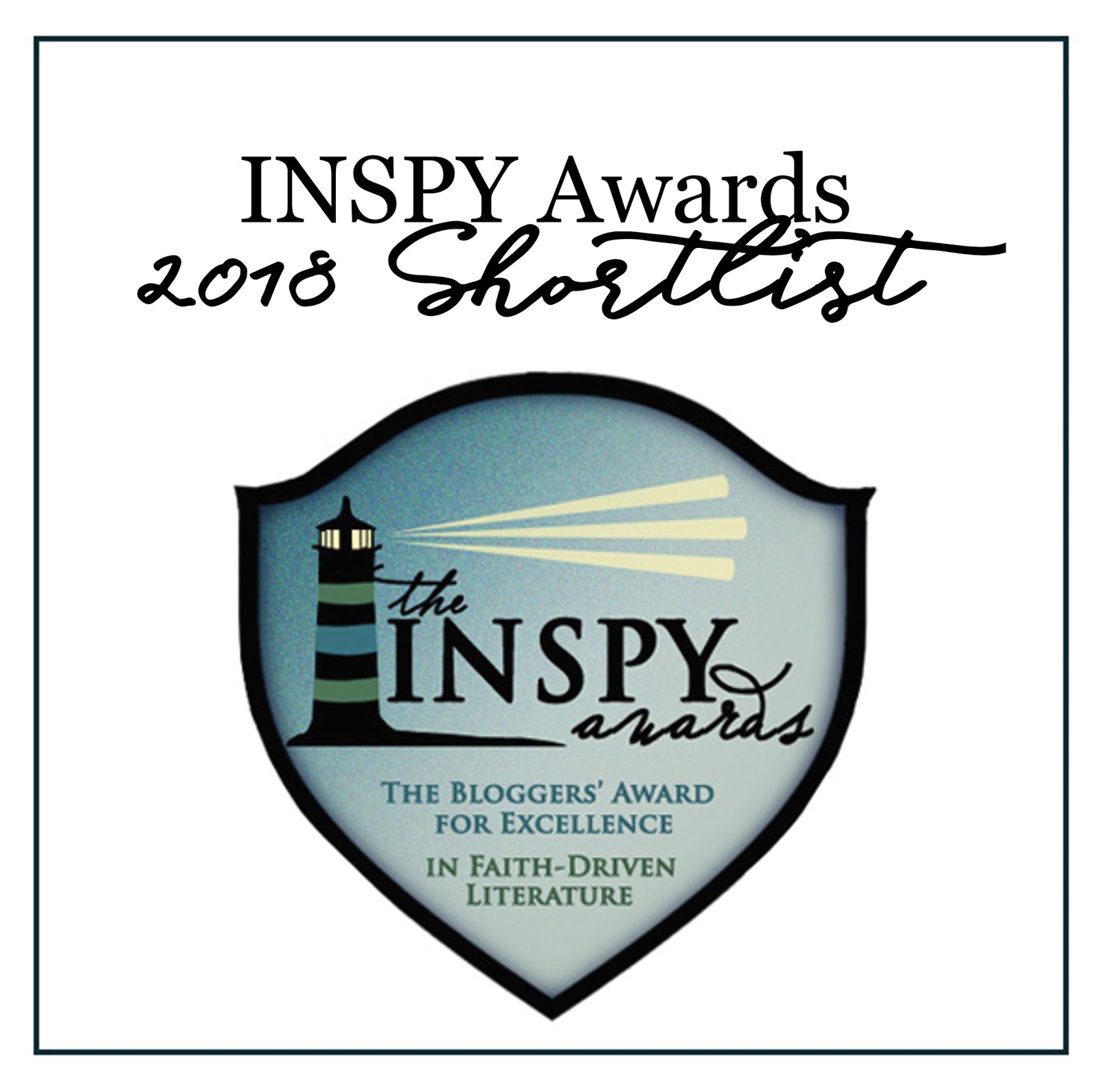

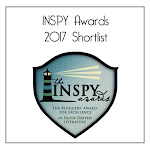

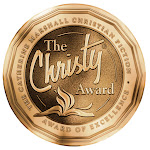


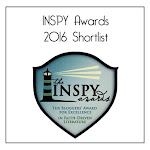
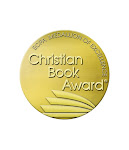

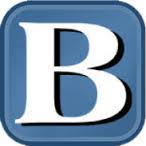
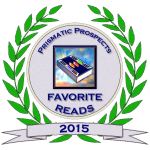

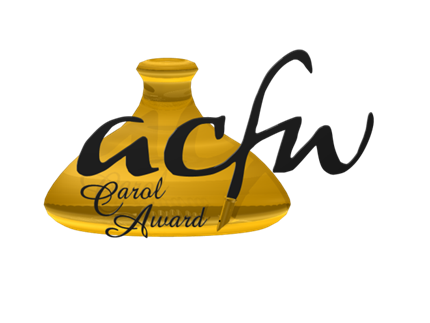

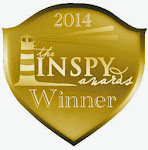
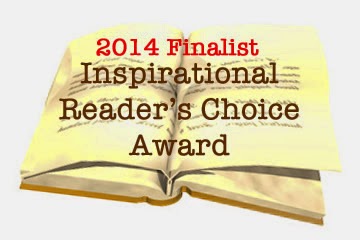
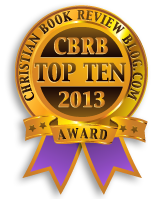
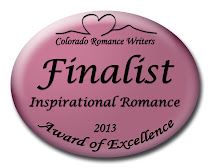


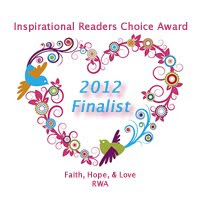

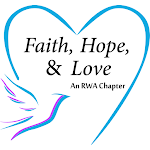
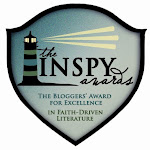

I have so much respect for Amanda Hocking. I love how she just says it like it is. She could have ranted at traditional publishers like I see some indie authors do - spewed bitterness on her blog - but she didn't. She's been level-headed.
ReplyDeleteAnyway - about e-publishing. I'm just happy to have a contract with a traditional publisher. I'm not getting too caught up in the whole e-pub thing at this point in my career. Excited to hear what Jim Bell has to say!
You make great points about intended audience. I think anyone who writes YA or Romantic Suspense needs to make sure they've got good e-rights in their contract. Also, I do think price is a big factor, honestly. For .99, there's a lot of books I'd buy just to try them out.
ReplyDeleteI'm not really into e-pubbing, but if I ever get a contract, the e-pub royalties will be something I look over because you never know how it might explode in the future. Or implode...LOL
I would hate to see a day when all we have available to us is e-publishing. Admittedly, I do most of my reading electronically these days, but that is purely for sheer convenience of being able to get a book in seconds versus weeks due to my location. If I had a Barnes and Noble around the corner I would probably still be buying paperbacks. As far as myself as the author goes, I'm not sure one can understand exactly how thrilling a feeling it is to see an actual book that you can hold in your hand, with your name on it. Rachelle talked about validation today and how we shouldn't be ashamed of wanting it. I totally relate, and yes, I feel validated. Like you I'm sure, there are many many years of hard work, sweat and tears in that book. Would I have the same feeling had I only published electronically? I doubt it. Infact I can say definitely not. I do think the e-books that do well for whatever reason create a ton of false hope for writers who just want to see their work out there. And then as you talked about the older generation sending you notes, I thought, wow, yeah - how sad if they couldn't read real books anymore!! Anyway, that's just my opinion, but I think we should always aim for both options when possible.
ReplyDeleteI am so not into e-publishing but I know it is very popular among many groups--my daughter is one of those. But I still prefer paper and probably at my age always well. grat post!
ReplyDeleteHi, Jody,
ReplyDeleteI think for some it's a great avenue. Many fine writers can't get a hold on an agent or publishing house. At list with this venue they have a chance to get their work out there for the public to judge.
There is nothing more frustrating than have a wonderful book that no one will ever read because of the pickiness of agents, especially now.
Competition grows stronger each year. Agents are taking less clients. E publishing is the future.
No, I agree, it's not for every book. I write M/G and Y/A in these market e-books are not the chosen route. Not every kid has a reading devise, but that will change eventually.
But for now I am going the traditional route. If nothing happens, then I will e-publish.
I think writers who've walked away from huge money at traditional publishers (who will remain nameless) are making a big mistake. They assume that the audience they've already built will follow them to ereaders, when ereaders have only recently taken off and will never completely replace the printed book. It's essentially like they're walking away from their audience. They'll have to start almost from scratch.
ReplyDeleteI self-published my first novel, and ebook sales make up about 10% of my sales. I'd be curious to hear percentages from other authors.
Katie and I have a shared respect and admiration for Amanda Hocking. We've even had a conversation on Twitter about it. What I like most about the decisions she has made is the fact that she emphasizes that they were decisions made based on what was best for her and her writing at that time. She made sound, well-informed decisions, and she did it with advice from others in the industry. Very smart, that one is!
ReplyDeleteThe biggest plus I'm seeing with all the recent blog banter is that it jump starts discussions about what's best for everyone. It helps all writers learn more about what is going on in the publishing industry. It helps writers ask more questions when it comes time to make decisions about their own contracts or where their writing ends up.
I also love your statement about knowing your audience.
Jody, thank you for a very insightful post. In all the hoopla surrounding e-publishing, it's very interesting to see real numbers from an author who already has a significant online presence. You make excellent points in this post and those of us that are hopefully on the verge of breaking out would do well to pay attention. Thank you for sharing your experience and your personal viewpoint with us.
ReplyDeleteOf course it would make a huge difference if your ebook wasn't priced at nearly 10 dollars.
ReplyDeleteThat's like saying, "hey do you think it's bad that my new hardcover is priced at 50 dollars?"
Yes, it's terrible. Your publisher overpriced your ebook significantly. You would have sold many more copies at a lower price. Instead what you have is a very skewed view of what realistic e-sales are for your books.
Until they're priced at the correct market value (my guess is somewhere between 4-6 dollars), you'll never know how many actual readers you might have.
So question not answered at this point.
I appreciate your insight, Jody! And I'm glad you reprinted that quotation from Amanda Hocking. She deserves a lot of credit for her hard work.
ReplyDeleteHi Jody,
ReplyDeleteI'm shocked too that your e-book sales weren't high. Great thought on this subjedt. Here's a link to a blog post over at The Kill Zone that sheds some light on this too. http://killzoneauthors.blogspot.com/2011/04/curious-case-of-overpriced-kindle.html
Personally, I want to publish as many ways as I can, but I'm thrilled to be getting published traditionally first. We'll see what the future brings.
You bring up some good points Jody, but I think there's a lot more to "epublishing", or publishing in general that get's left out of this particular conversation.
ReplyDeleteAs you pointed out, your ebook sales are very poor. You also mention that your are signed w/ a publisher. The reason your ebooks don't sell is price. On average, trad pubs list books for $10, and people simply aren't willing to pay that. I would bet that if you had the luxury of lowering your price to $2.99, you'd see a huge spike in sales.
The other thing authors tend to forget (or not realize) is that it's not just ebooks if you're unsigned, you can get printed books, and yes you won't make as much as digital, you'll still probably make as much or more that if you went the traditional route w/ a publisher.
Lastly, we are in a different time now where publishers are not required, or even helpful. Writers are creating products, AKA stories, which need to be sold. This is a BUSINESS, and writers need to understand that and make the proper business choices. Taking a 25% royalty when you could make 75% doesn't make very good business logic. Paying for services over the lifetime of a book gets really costly. Would you pay a kid who mows your lawn a percentage of your house? No you give him $10 bucks or whatever for his service.
Everybody applauds Amanda for her latest deal, but I think she made a very bad business decision. Even by her own admission she will lose money on it. And, she loses the rights to those books.
Authors should ask themselves, why do they want that contract? What can a publisher do for them that they cannot do themselves (and I don't mean alone - few businesses are just one person doing everything)? What are you giving up by signing that contract?
If you think digital books are not important, just look at the music industry. The labels didn't think MP3's were a big deal either, and look at where they are.
It's important to give your fans what they want and how they want it (they are the boss, contrary to what the pubs think). The torrent sites are alive and well, not because people want everything for free, but because they don't want to pay $10 for something that should be $3 or less.
Sorry for the long winded post, I get passionate about this stuff, but I'll leave you with this last thought: You haven't "made it" when you sign with a publisher. You will have "made it" when you finish writing that book, and readers buy it, and let you khow they love it.
I think price is a big factor. For $10, I'd rather own the hard copy of the book, but I don't think that any author should discount e-publishing. I just think, like you said, know your market and figure out how much time you have to spend on marketing.
ReplyDeleteI am so glad you brought up the point about audience. I don't write genre fiction (as in, paranormal romance, horror, or chick lit) but it seems like most of the success stories I've read have been from authors who write in these genres. I don't think I would find my primary audience through e-book sales, which is one of the many reasons why I will persue traditional publishing routes.
ReplyDeleteJody, I had to smile at this comment: "But I still don’t foresee middle-aged women and older shifting to Kindles any time soon." I'm one of those "middle-aged women" who has made the shift. What's interesting to me is that many of my "mature" friends have, too. In fact, the reason I own a Kindle is because a number of my--OK I'll say it--older friends are thrilled with their e-readers. Some of my long-time personal friends who are my age have asked if my book will be available on Kindle.
ReplyDeleteI don't see the print-vs-electronic debate as something that has to be either/or but AND. I believe we're in the early stages of the digital book phenomenon and will see e-book sales continue to rise. However, there will always be those who prefer print books, and I like to think they'll be available for years to come.
Someone mentioned they'd be interested in knowing what other traditionally published authors' e-book sales are. Well, I pulled out my most recent royalty statement and did the math. On my four contemporary romance titles currently out, which have sold in trade-fiction paperback at an amount that makes me a "mid-list" author, my e-pub sales total up to only 0.97% of all books sold. Yes, less than 1%.
ReplyDeleteI don't have a recent statement for my historicals (with a different publisher), but I imagine that those sales would be even lower.
So, yes, I'm quite leery of this "let's go straight to e-pub" conversation. If my readers aren't there now, why would I expect them to be there if turned my back on traditional publishing?
Great post and info Jody. I think we're still looking at things from a Black & White sort of 'choose your religion' perspective in publishing. This is where so many authors, agents and publishers are stymied. It's not about choosing publishing as the ultimate goal. It's about communicating your work to an audience. It's more like a series of checklists. Does your genre do better in paper or Epub? How much control do you want? Etc.
ReplyDeleteMany are holding up Amanda Hocking as that first example of the way publishers will adapt. Let the authors produce their content to see how well it does. If it's successful offer a trad pub deal. Ultimately letting E-pub and self-pub dictate how viable your material is now.
Sure price is probably dictating how many people are purchasing your Ebook variants. Why is the Ebook price so high? There's even less cost in production. You've also said yourself that Rachel Gardener looked at about 10K worth of queries and accepted none. Is it really likely that mid-list authors will be able to get in through trad-pub anymore? To me it looks like you have a better chance at winning the lottery at this point.
Ultimately though, there should not be a division of thinking, we do know that E books are the future. (Grew 164% in December alone.) Why wouldn't it make sense to have your work out there while you try to get a Trad Pub deal?
It's not about the medium we use to get our stories to an audience it's about that story more than ever.
Phil Bowyer - I think you may not be taking into account the entire reasoning behind Amanda Hocking's decision. She certainly feels she'll lose money on the four books she's signed on for, but the gamble she's taking is that getting these books through the traditional distribution model will get her name out among readers who still shop for books by wandering around a brick-and-mortar store and casting an eye on their displays... thus potentially creating more sales of her self-published works.
ReplyDeleteThe gamble may not pay off, but the opportunity cost of these four books has to be weighed against the effect of gaining another to another distribution vehicle.
You're absolutely right, however, that self-publishing does not stop at electronic publishing.
Jody, you do need to be aware that the growth of print-on-demand services has created a climate in which print novels can be self-published as well. Getting these on physical shelves takes a bit of work on the publisher end of things, but chances are even your lovely cursive-printing fans know of amazon and do some shopping there.
To a very real extent, the idea that self-publishing and traditional publishing are at odds is a false dichotomy. Certainly, some writers are eschewing one end of the business entirely, but many are doing both, and some are jumping into one with a name built in the other. What's important is taking stock of one's own career goals and determining how all of these tools, old or new, can be used to further them.
Jody,
ReplyDeleteThanks for being transparent with your experience. It helps to have actual numbers when comparing scenarios.
Very insightful.
-Regina
I read a lot. Like, two or three books a week. Some of these, I get at the library. Others, I order from amazon. Most, I buy for my kindle.
ReplyDeletePrice is the biggest factor for me when I consider ebook versus regular book. I won't pay more than $5 for an ebook, mostly because of all of the restrictions on sharing. If I could share the ebook as much as I wanted to, I'd pay a bit more.
I only buy print books that I know I'll want to pass on.
I've been reading your blog for awhile, so I looked at your book a few months ago. I saw the kindle price was virtually the same as the print verson, and immediately turned to the library. They had a copy available and I read that. (And liked it!)
I never thought I'd join the ranks of kindle owners (I'm a middle-aged woman), but I LOVE it. There's no turning back!!
WOW!!! Some EXCELLENT comments today!! I'm loving hearing the diversity of thoughts on the topic! Keep 'em coming! :-)
ReplyDeleteSome of your post here implies that epublishing is self publishing and it is not. There are many many published authors who are published through primarily digital houses. It's still "traditional" publishing meaning that books still have to be submitted, reviewed, and accepted, and they still go through extensive editing with in house editors. The only non-traditional thing about them is that most still accept unagented submissions.
ReplyDeleteSelf publishers are also publishing digitally, but it's an entirely different game.
I think the genre has a huge effect on digital sales. For your demographic, no, digital may not be the best way to go. But for many other genres, it is. I think offering both options is important.
Marcin,
ReplyDeleteI didn't mention it because while she may think that- it won't be true. Again, she already has a huge fan base. She made well over a million dollars self pubbing.
So, here's the question: how much money does she really need so she feels successful? If that million she made isn't enough, something's wrong.
Also, her pricing is cheap. These trad books aren't going to have that price point. So while she may get a few new readers with this "magical exposure", how many will she lose because the books are now $10 instead of $3?
I think it boils down to authors don't think they're authors unless somebody at some publishing company says so, which is complete crap.
The reason that I sell hundreds of books each month as an e-author is due to the fact that I put my faith in creating multiple titles, writing for genres that are under-served and writing shorter books (with high quality material).
ReplyDeleteI also approached writing ebooks as a 10 year plan. Just as blogs, Facebook pages, etc., take a while to grow an audience so do eBooks and the authors who write them.
I have had a publishing contract and a published book and I didn't enjoy the experience. I have also had my work published in magazines, newspapers, etc. I prefer the e-book experience and even turned down the last agent who wanted to work with me based on my writings at Psychology Today.
My work is distributed through Amazon, Barnes & Noble, Smashwords, Lulu and iBookstore. The royalties I receive from these venues makes self-publishing well worth it.
One last thing, traditional publishing is based on conditional acceptance. There is no guarantee that an aspiring author will be accepted by a publisher. One can always e-publish while shopping a book and take it down if a publisher wants to publish it.
Jody,
ReplyDeleteI think it's great to be discussing this subject. Authors really need to share their experiences so we can learn from each other.
The reality for most writers is that e-publishing is the only avenue available to them until they have success. It's wonderful that you have a three-book deal but that's not the case for 99.9% of us.
Would I go the traditional route if I got an offer tomorrow? Maybe. It frankly depends on how much marketing muscle the publisher is willing to put behind the book.
I do think pricing is a factor for your sales, specifically. I'm going to price my novel for 99 cents for the first month and then $2.99 thereafter. Every author that breaks out and sells a million copies does because of word-of-mouth, so it makes sense to sacrifice profit margins initially in order to hopefully build a large group of fans who are willing to tell others about your book.
Lastly, correct me if I'm wrong, but you don't Tweet the Kindle availability of your novel! At least that's what Twitter advanced search tells me. Expecting someone to find your Kindle book without a little help is like telling someone to go find a needle in a haystack :)
Alex Adena
Twitter: @alexadena
Jody, you've raised a very important point about audience. But also consider that audience in coming years, when e-reader technology will be standard and hopefully cheaper / more accessible. Will your publisher or any other still be able to justify the relatively high price on your e-books? Also, as a daughter of oen of the middle-aged women who enjoys your genre, imagine my surprise when discussing Mother's Day gifts, I learned my mom wants a kindle. She had toyed around with mine while I was on vacation and discovered that she could increase the font size and use the text to speech functionality. With her diminished eyesight, these enhancements sold her on a kindle. This is the same woman who I can barely get on Facebook or rarely on a computer to do her mobile banking. As your audience adapts to new technologies just as my mom did, it will be interesting to see what they feel about the cost of ebooks and how much of a factor it plays in their purchases.
ReplyDeleteI'm still longing for that day when I will be published. Personally, I know seeing that book with my name on it, it will be a thrilling experience and I pray I don't miss it when it comes. E-books, I've just realized that I can download them to my pc - which made my day. I refuse to admit how much money I spend on books a year. I have not yet purchased an e-book, because I love the feel of the actual book in my hands. I love the sound of the flipping pages, I love taking it into the bathroom with me for a long soak, I love curling up on the couch with it, in bed, laying on the beach, in the hammock...I love the "real" thing.
ReplyDeleteI have downloaded e-books - all FREE. Why? Because I live in England and it's cheaper and easier for me right now, plus it allows me to give an author a chance that I normally wouldn't. I purchase books by author's I know. If I don't KNOW you, chances are I'll find an author I do know with a book listed at the same price. A lot of authors I read write "series" and I'm addicted to those. So here's a new author hoping to make it and here is an author I already know that just released book #2 of the series - which one do you think I'm going to buy?
Downloading the FREE e-books I'm getting a taste of what the author is like and if I like it, chances are I'll look for the "real" thing.
I do not own a kindle yet, but I know I can not take my laptop outside in the sun shine to read, I can not curl up in bed with it for the light of the screen keeps hubby awake, and I certainly can not take it into the bath tub...so will I be able to do those things with a kindle? I doubt it. All in all, if the real physical book is there - then I as a reader prefer it. As an author, I hope the good Lord allows me to find out someday.
Thanks Jody!
As a fledging author learning as much as possible, I'm really excited by this discussion.
ReplyDeleteFor many years, I believed self-publishing was for those who simply weren't good enough. I've finally realized my ignorance, and I do see the many advantages in it.
For me, it's the intimidation factor that makes me nervous. The idea of designing my own cover and marketing my own book is overwhelming. I'd have no idea how to do those things. I'm sure there are those out there to provide help, and of course I could learn, but the entire idea is overwhelming.
Then again, so is the idea of getting rejection after rejection when I know I have a good story people will want to read.
My question is this: for a new writer like me, would you all suggest going through the query system for the experience? Is it likely an agent will give you tips on what you can do to make your writing better? Or would you suggest newbies get serious about self-publishing?
Great discussion!
Hi Stacy! I'll be talking a little bit more about that subject on Wednesday's post with James Scott Bell. In fact, I asked him if he would have considered e-pub as a new author! You'll have to let me know what you think of his answer on Wed. And let me know if you have any more questions! How's that for a teaser?! :-)
ReplyDeleteTHANK YOU for your honest insight into your sales figures. After hearing so much about the huge surge in e-book sales this Christmas season, I also assumed the numbers were higher.
ReplyDeleteAll of my readers have been from hard copy sells.
ReplyDeleteTo epublish or not to epublish is a very hot topic right now.
You've made some very good points. I'll have to stop by Wednesday and see what your guest has to say.
As a Kindle owner, I like having the option to purchase books and get them delivered instantaneously. Of course, I still purchase books at the store, but I reside in an area where Borders, Barnes and Noble, Books-A-Million, etc., are an hour's drive away.
ReplyDeleteNow as a writer, I appreciate both traditional and e-pubs because of the diversity they offer. In my book proposal to my agent, I stated the broad age range of the mostly female target audience that I wanted to reach. Women in their 20s and 30s are more apt to purchase a book on an e-reader. Personally, I think that both mediums can be beneficial to writers in this day and age. I wouldn't limit myself to one or the other.
Jody, I think it's lovely that you receive personal letters written in script. And I'm one of your readers who doesn't yet own a Kindle! In my opinion, traditional is nice because it offers both print and e-book, plus the expertise of seasoned editors.
ReplyDeleteFascinating discussion. I think the jury is still out (and likely to be for some time).
ReplyDeleteI have to admit, I'm a reader who never would have believed I'd be an ereader, but between my Nook, my iPod and my iPad, I read far more books digitally than in paper. Some of it is practicality. If the book is one that I'll read for enjoyment but am unlikely to reread, I'm far happier to have it on my Nook and not have to add it to the overflowing bookshelves.
Also, I live in a city and travel by subway a lot. My iTouch is much lighter to carry than a book, so that often factors into which format I buy.
Wow Jody, So interesting to see those numbers! Your post reminds me of a cliched old phrase, "Don't put all your eggs in one basket." It may provide success for some, but I like to diversify. :)
ReplyDeleteHave never visited your blog....cute header and interesting content.
ReplyDeleteNew Follower.
Stop by my blog if you like.
http://silversolara.blogspot.com
Actually, price is a huge factor in e-books. I have to wait for books priced at almost $10 to come down. Anything $5 and under I jump on. Why? My book budget is very small in these hard times. I buy books used or get them from the library.
ReplyDeleteI also think your reasoning is off with middle-aged readers not being interested in e-readers. Aging eyes will have an easier time with the bigger print available on e-readers, without the traditional large print book pricing. Comparing learning to use a computer to learning to use an e-reader is not the same either. Computers are complex; most e-readers are very simple to use. My mother hates using the computer but she was chugging away at a book on her new Kindle in 15 minutes.
Your e-book sales may only be 1% now, but as time passes, I believe e-books and traditional pubbed books sales will be equal.
Furthermore, I actively look for and embrace authors who are open-minded and active in the e-book market, and have begun not supporting as much authors whose books are only available in print. Authors with progressive mindsets tend to write books that I enjoy.
Wow, Jody. You've really hit a commenting gold mine here! As someone who is trying to get my first book published (I have an agent), I've been paying a great deal of attention to this issue. I've felt as if I couldn't make the pro-ebook people understand that my genre, historical mystery, is just not going to have an e-reader demographic. Most of them don't even read a blog, have a facebook account, or are on Twitter. Most of their computer time is spent on reading e-mails from their grandchildren and printing address labels.
ReplyDeleteThanks for helping me feel not quite so alone in the wilderness!
Whew. I just read the comments--a lot of passion there. I agree with you on audience. Christian romance in general isn't a huge e-book genre, but I'm sure that will change. Some genres do better than others in e-sales, and writers need to be aware of that.
ReplyDeleteI think there are no perfect routes for authors. We don't have complete control over the output, whether we publish through a traditional pub, and e-pub, or self-pub, but we can inform ourselves of what to expect.
Jody
ReplyDeleteThank you for the response and the teaser! I'm very interested to read Wednesday's blog. Judging from the all the comments, the answer to whether or not a first time should skip directly to self-publishing or e-pub seems to be quite mixed.
Good points. All the hullabaloo is worth noting, but authors are individuals, as are their books and writing successes. What works for one author may not work for another, for a host of reasons.
ReplyDeleteBut your promotional efforts were geared toward physical book buyers, I think. I'm not sure that ebooks are or should be marketed in the same ways.
Also, I suspect there are genres that lend themselves more to ebooks, like contemporary romance versus historical Christian fiction.
Wow! We're on the same wavelength today, Jody. I wrote my Friday Round-Up for 5/13/11 tonight and linked to a post on e-publishing.
ReplyDeleteThe statistics don't surprise me at all. I thought long and hard about getting a Kindle, but settled for the software on my computer. The one book I downloaded is still sitting there...unread and for the most part forgotten.
I love a "real" book.
Blessings,
Susan :)
I'm entering middle age (hello, 30s!) and I have a Kindle. I used to be one of those "pry paper books out of my cold, dead hands" people, too. But I gave in and got a Kindle and haven't looked back (though I still read some paper books as well).
ReplyDeleteI also have dipped my toes into self-publishing. I've sold over 100 copies without doing any marketing at all. Most of those copies sold are under a name that has no traditional publishing background and is in an "unpopular" genre (literary fiction) and an "unpopular" length (they are short stories priced .99 each).
Times are changing...
It sounds fun to make money the trendy new way. That is digitally. Instead of creating the next new online social networking website, write the next new awesome novel and score $$ through widely distributed digital sales.
ReplyDeleteI haven't really been published yet, however, and I definitely want to see a hardcover or mass market paperback with my name on it (or my words in them at least ie ghostwriting). So I wouldn't jump straight to e-books alone. I would try to get published in paper-form and supplement this with e-books.
The E-book Only route seems best suited for YA novels.
I sell about 100 ebooks a month, close to 1,000 all told. I've sold about 100 paperbacks all told, most as direct autographed copies. I'm a nobody. I went independent because I couldn't wait the years it takes to find an agent and a publisher and get the book on the shelf; I've had a critical illness, you see, and I didn't know how long I would have. I made sure to put an uber-professional product out with a real editor, typographer and cover artist, and I've more than made that money back. It's working out for me in a limited way now, and when the second book comes out I think I will do that much better.
ReplyDeleteI sell about 100 ebooks a month, close to 1,000 all told. I've sold about 100 paperbacks all told, most as direct autographed copies. I'm a nobody. I went independent because I couldn't wait the years it takes to find an agent and a publisher and get the book on the shelf; I've had a critical illness, you see, and I didn't know how long I would have. I made sure to put an uber-professional product out with a real editor, typographer and cover artist, and I've more than made that money back. It's working out for me in a limited way now, and when the second book comes out I think I will do that much better.
ReplyDeleteThis debate is always fun to discuss: from self-publishing is crap to the paper publishers screw you over, it's interesting to see the wildly varying opinions on the matter.
ReplyDeleteI'm still on the fence regarding a lot this stuff. I have a contract with a paper publisher. My book is out digitally as well, and actually priced under $5. So, it will be interesting to see how digital compares to paper sales with my UF book. There are advantages and disadvantages to both sides, I think.
Self-publishing is an independent business. You are in charge of everything, incurring all risk and costs, whether in money and/or time. Some folks love being in charge of and responsible for everything. It's more work and more time. If you want to do things well and don't have the skills for it (most don't), you pay for editing, copy-editing, and cover art. You can get these things done at 'reasonable' prices, but you still have to pay, and if you don't have the income for it, then you're stuck trying to figure it out for yourself. If it works for you though, and the risks are acceptable, then go for it, I say.
I pay for my editing/cover-art/distribution/copy-editing/etc. with lower royalties. I'm playing the odds that overall, I will do better, and build a bigger audience as a debut author with my paper publisher. With a few books under my belt, I might be willing to dip my hand into self-publishing, if I've not achieved the sort of success I am hoping for. Another year or two and it might be quite a bit different out there. Time will tell.
I will say though, the one thing that bothers me most with self-publishing, is the 99 cent book. I understand the economics of it. Consumers don't want to risk the investment on something that has the perception of not being produced as well. Digital content is driving down the value of books. Self-publishing has little choice but to meet consumer demand in regard to cost, otherwise they won't sell books. In the end though, it means the value of book is driven ever downward. I cringe at the notion of a story only being worth a dollar. It's a slap in the face to the amount of work that goes into creating it. Honestly, I don't care that you sell more at that rate to compensate for lost sales at a higher price. It's a principle thing for me. I just can't accept the idea that such a valuable commodity for culture can be shelved in the dollar store next to the piece of crap toy that takes no effort to make and is purposefully made as cheaply as possible. Stories are not.
Maybe I'm just being hard-headed and backward about the whole thing, but I will never sell a book for 99 cents. Economics be damned. Stories are worth more than that.
This comment has been removed by the author.
ReplyDeleteJDuncan, Great point about books being worth more than a dollar. I'd venture to say they're worth more than $2.99 too. After the months and weeks we put into crafting our books, editing, etc., it's tough to swallow the idea of practically giving away a book for free! Thanks for adding to the discussion.
ReplyDeleteI'm with Katie. I just can't wrap my mind around epublishing yet. I'm still working towards traditional publishing, but learning all I can about epublishing. My next goal is to learn HOW to write a nonfiction ebook!
ReplyDeleteWell, I guess there are many reasons e-books aren't that popular today:
ReplyDelete1. As the article says, you have to promote your book well. It may suck if you're not into marketing, but you have to prove your book is worth reading. There are millions of other books and novels out there; why should your readers choose you?
2. Let's face it: authors like to write stories - not code. Ebook editting forces you to do the latter. While to type a conventional book all you need is MS Word (or inDesign, if you are more serious about book publishing), to create an ebook the best you have out there is Sigil. And it lacks lots of features. For instance: you can put your font togethers within your document, but how do you switch between them without coding?
Or how can you create a quote style without messing with HTML? If ebooks want to get more popular, we need better publishing tools.
3. The pricing: even though ebooks are priced ridiculously low, ebook readers (the "real" ones, with e-ink), are still very pricey. Do you want a color e-book? Forget about it, unless you want to spend around $800-$1000 or more.
Several people have noted that e-publishing is not the same as self-publishing. One is a medium, the other is the type of publisher.
ReplyDeletePricewise, 8+ is just more than most people are willing to pay. But there may be more to it than that. I wanted to bring your attention to: http://kriswrites.com/2011/04/20/the-business-rusch-royalty-statements-update/ (Short version - traditional publishers are not set up to send accurate royalty statements w/r/t ebooks - and the formulas they use simply don't work for electronic books.)
Your sales may be quite a bit higher. You deserve those sales, anyway!
I know that e-readers are really taking off among the older women I know, because with an e-reader, *every* book is large print.
Sorry to delurk with such a long post! /slinks away, embarrassed.
Hi Kathleen! Thank you for adding to the discussion! I appreciate your thoughts! So please don't slink away embarrassed! :-)
ReplyDeleteI've published an ebook of short stories on Amazon and Smashwords. They've sold very little, but I wasn't looking for revenue. I was looking for experience and knowledge, and I've gotten both. I've written four or five novels that are yet to be published, and may never be published by one of the major publishers. So I'm learning the ropes in case I decide to epub my novels. But, in epublishing as in traditional publishing, the quality of your product is paramount. Sloppy writing and a host of grammatical and formatting errors won't add up to a best seller. You've got to work just as hard on editing and revising for epublishing as with traditional publishing. Anything less won't work.
ReplyDelete